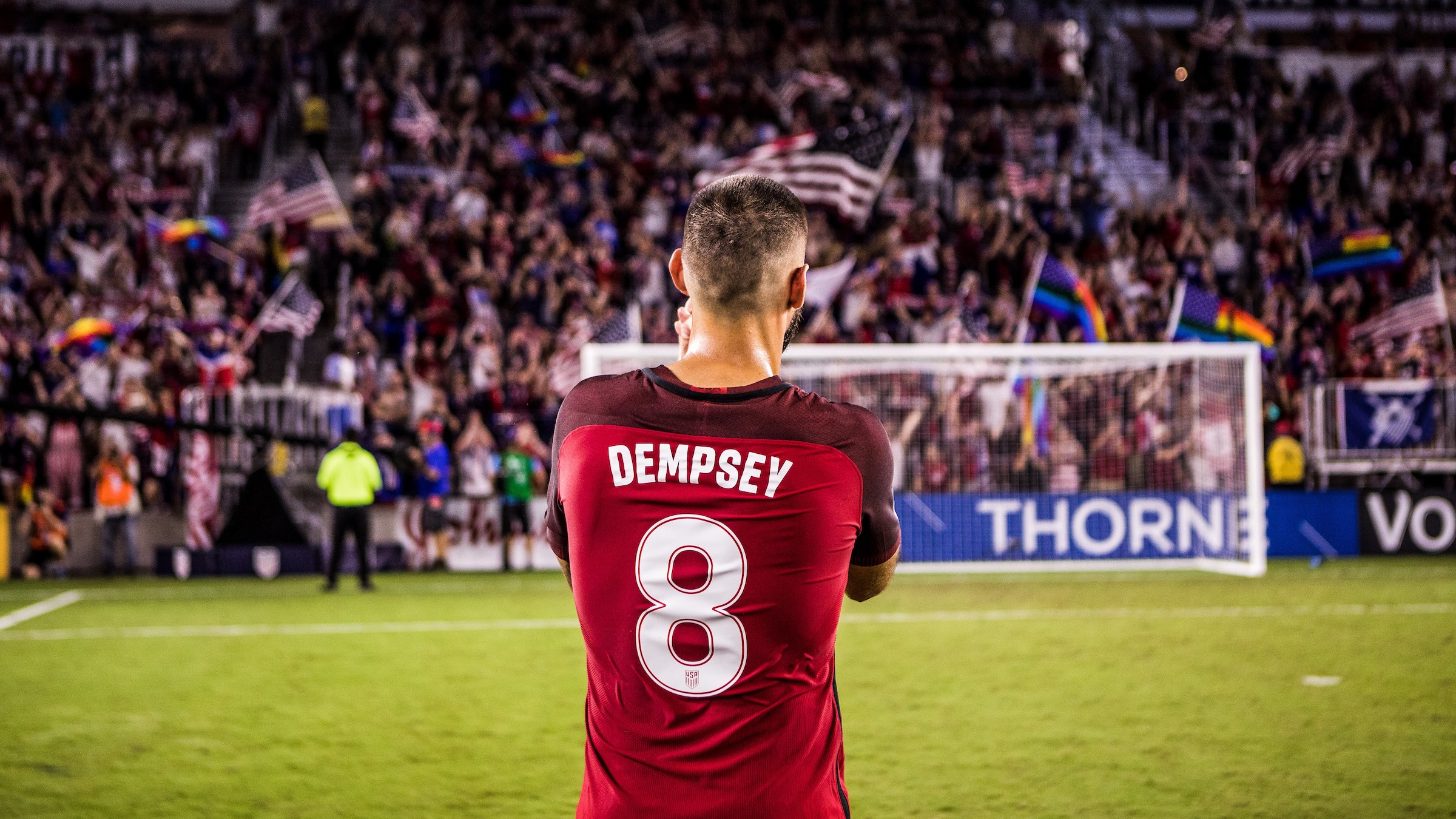Lance Reich: U.S. Soccer’s “very inadequate youth records” disrupting solidarity pay

By Charles Boehm (@cboehm)
SoccerWire Analyst
FIFA has approved the awarding of training compensation and solidarity payments to youth soccer clubs in the United States and the professional overseas clubs are ready and willing to make those payments, but poor record-keeping by the U.S. Soccer Federation is holding the process back.
That’s what Lance Reich, the attorney representing DeAndre Yedlin’s youth club Crossfire Premier and other clubs seeking training compensation/solidarity payments for their role in developing top American players sold abroad, alleges in his appearance on Episode 29 of The SoccerWire Podcast.
“We have filed claims on behalf of [the former youth clubs of] Michael Bradley and Clint Dempsey on their respective signings for solidarity fees, and those were denied because the U.S. Soccer Federation couldn’t give player passports, they couldn’t give the record of youth training,” said Reich.
“According to the U.S. Soccer Federation, Clint Dempsey never played youth soccer in America. So that’s been very troubling. Player passports are mandated in the FIFA rules. In other words, a country must keep them and the reason it’s so key is because that is the main system they use to stop child trafficking or illegal transfers.”
Under FIFA’s Regulations on the Status and Transfer of Players (“RSTP”), clubs around the world that develop quality players who move on to bigger clubs are recognized and rewarded financially via training compensation and solidarity payments.
When a player registers as a professional for the first time in a country other than the one where they did their development, the club with which the player registers is responsible for paying Training Compensation to every club that contributed to their training from the season of their 12th birthday through the season of their 21st birthday. Training Compensation is also due on a player’s subsequent international transfer through the season of their 23rd birthday to their immediately prior professional club. These payments are calculated on a sliding scale based on the region of the world and the caliber of the club involved.
Solidarity payments work differently. Any time a professional player is transferred from a club in one FIFA member federation to a club in another federation during the course of his contract, up to 5% of the transfer fee is to be withheld and paid by the club receiving the player to the club or clubs involved in that player’s training between their 12th and 23rd birthdays. Unlike Training Compensation, Solidarity Payments will be due for the duration of a player’s professional career regardless of age, any time the player is transferred between federations while under contract and a transfer fee is paid.
In order for this system to function, FIFA mandates that federations maintain a “player passport” for every registered competitive youth player in their country, documenting what clubs they train at and for how long. This has been an issue for USSF, Reich said, on Yedlin’s 2014 transfer from the Seattle Sounders to Tottenham Hotspur and others.
“We encountered this again with Crossfire. So Henry Wingo went from Sounders to Molde in Norway [last year],” he said. “And sure enough, there’s a small payment, a small solidarity fee. And Molde told Crossfire, ‘sure, we’ll pay this, can you give us a player passport?’ Well, the player passport from the U.S. Soccer Federation doesn’t show anything. He was a Development Academy player, Wingo.”
For many years both MLS and USSF were staunchly opposed to the TC/SP system being implemented in the U.S., citing a variety of reasons, though MLS changed its policy last year, announcing the league’s intention to pursue such claims from then on. However, that would only apply to MLS member clubs and not youth-only clubs or those from other levels of the professional and pro/am pyramid; as of now there is no domestic equivalent to TC/SP in this country.
Many consider TC/SP a potentially valuable tool that could incentivize the cultivation of elite talent in the U.S. At the very least, player passports provide a paper trail as players rise through the system and the lack of such documentation risks problems for all parties down the line.
U.S. Soccer is currently building a digital player database to address this issue, though the responsibility of accurate record-keeping also falls on clubs, leagues and sanctioning bodies like US Youth Soccer and US Club Soccer. Documentation of the youth pathways of many of today’s adult professional players is rarely digitized and spotty in many cases, a situation that also arises in other countries around the world.
“When you’re under 18 and you go from country to country or federation to federation, your transfer has to be approved. And you see a lot of people get tagged with violating that: Barcelona got hit, Chelsea, all those guys were sending minors without approval,” noted Reich. “And so that’s why the third rail of FIFA is as a player passport, for making sure that kids don’t transfer improperly. And right now U.S. Soccer is sitting right on it.
“So we’ve been weighing what to do about that. And I don’t really have [U.S. Soccer’s] position on this, but they have very inadequate youth records. And that’s been sort of the holdup right now. … That’s the next thing we have to fix, is our system of tracking kids in America, and it’s been a problem ever since I got involved.”
Follow the links below to listen to Episode 29 of The SoccerWire Podcast.











